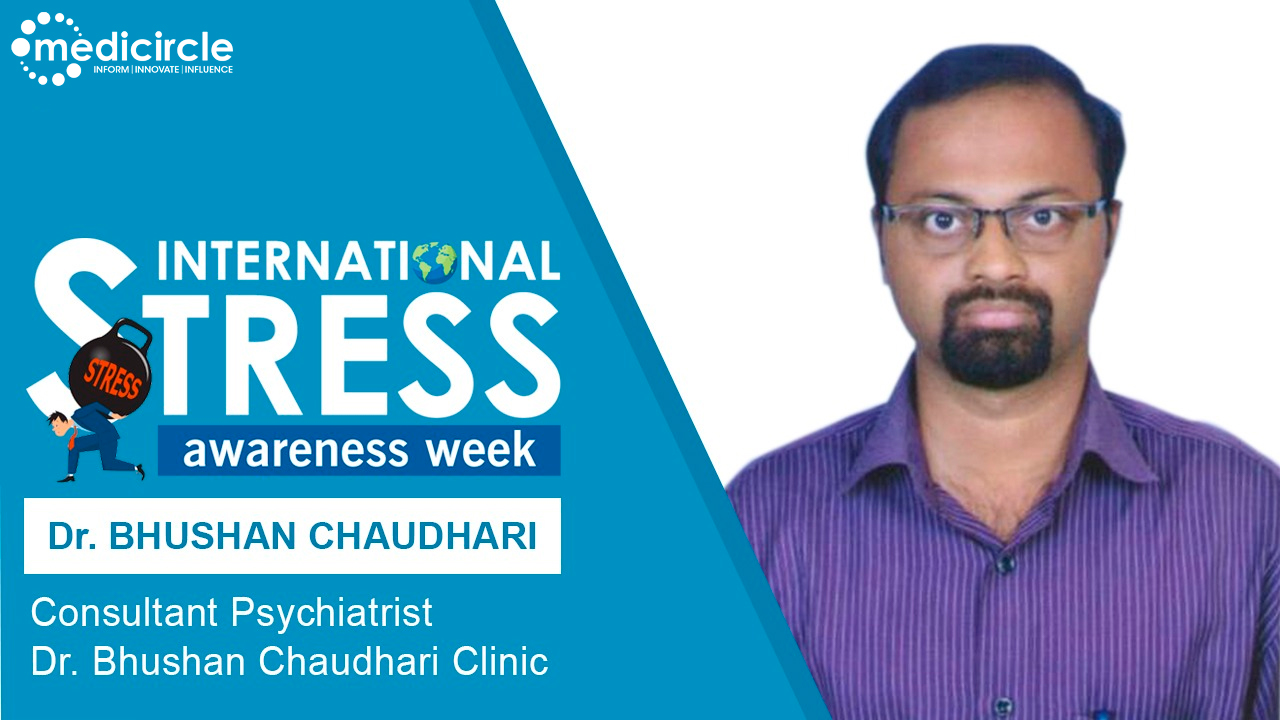The feeling of being overwhelmed or unable to cope with mental and emotional pressure is stress. Stress is our body’s response to pressure. Many different situations or life events can cause stress. Sometimes, this stress response can be useful: it can help us push through fear or pain. However, too much stress can cause negative effects. Long term, this can affect our physical and mental health. As per the result of a large-scale survey conducted across India in 2019, young adults between the age of 20 and 29 years of both genders were the most stressed in the country. The major cause of high-level stress among young people are peer pressure, pressure to succeed in academics or work, and irregular routines. 50% of Indian professionals have reported that an uncertain future is their topmost source of stress as was revealed in a recently concluded survey by The7thFold, a boutique HR and Wellbeing firm.
Every year, the world celebrates International Stress Awareness Week from 1st to 5th November. The day encourages people to sit back, unwind and embrace peace. Awareness about this has become even more significant this year due to the tough times people across the world have gone through in the COVID-19 outbreak. We at Medicircle are conducting the International Stress Awareness Week Series wherein we will be featuring experts in this field to understand and create more awareness about the effects of stress.
Dr. Bhushan Chaudhari is a Consultant Psychiatrist for 11 years in the Pimpri Chinchwad area, Pune. He is currently associated with Dr. Bhushan Chaudhari Clinic at Chinchwad, Pune. He is also a Professor in Psychiatry at Dr. D Y Patil Medical College Pimpri Pune. He has done research articles in various national and international journals. His Area of interest is Psychopharmacology.
Stress – Good and bad
Dr. Bhushan says, “Stress is any reaction of an individual to an overwhelming or challenging situation. It is a natural reaction. Sometimes it is good but to a certain level. Excessive stress for a prolonged period turns into chronic stress. Every individual shows different levels of physical and psychological symptoms.
Physical symptoms
Palpitation, chest pain, breathlessness, bloating, sleep disturbances, headache, nausea, and vomiting
Psychological symptoms
Irritability, mood swings, impaired concentration, mental fatigue, frustration.
Consequences of chronic stress
Dr. Bhushan explains, “Chronic stress may impact your mental and physical well-being. Some consequences of chronic stress are: -
Burnout syndrome – Individuals lose their interest in doing things.
Psychological disorder – Depression, anxiety, psychosomatic disorders.
People get suicidal tendencies if not handled properly on time.
If you see these signs and symptoms in any individual, it becomes important to seek professional help.
Stress management
Dr. Bhushan, "Your attitude is very important. Don't avoid it, deal it with all the sources you have. Plan and prepare yourself. Work management, time management, and planning are very important in stress management.
Meditation, yoga, breathing exercises help in calming you. Improve your physical health – Eating and sleeping habits. Hobbies like reading, listening to music are good stressbusters. Good communication with your friends and family.
(Edited by Renu Gupta)

 Stress is any reaction of an individual to an overwhelming or challenging situation. Sometimes it is good but to a certain level. Chronic stress may impact your mental and physical well-being. Learn some tips on stress management from Dr. Bhushan Chaudhari, Consultant Psychiatrist
Stress is any reaction of an individual to an overwhelming or challenging situation. Sometimes it is good but to a certain level. Chronic stress may impact your mental and physical well-being. Learn some tips on stress management from Dr. Bhushan Chaudhari, Consultant Psychiatrist




















.jpeg)










